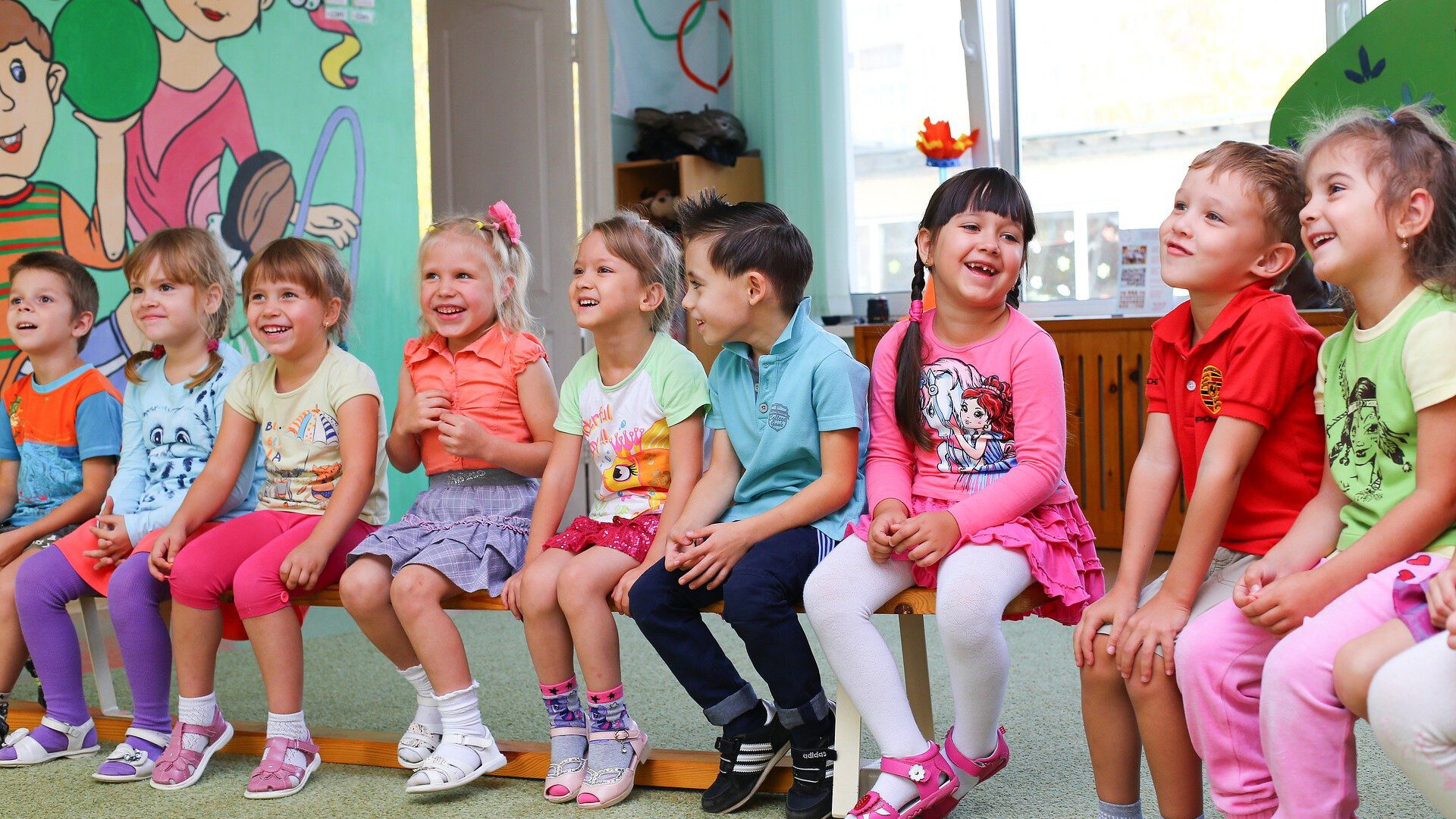Tasks and fields of work > Assistance and support
Statutory day-care for children
Day-care for children... | ⇒ | supports parents | ||
⇒ | benefits children | |||
Day-care is provided in... | ⇒ | Day-care facilities | ||
⇒ | Nurseries | |||
Day-care for children provides… | ⇒ | education: | ||
⇒ | child-rearing: | |||
⇒ | care: | |||
Notes
Articles 22 to 26 of the Child and Youth Services Act (Kinder- und Jugendhilfegesetz), which corresponds to Book 8 of the Social Code (SGB VIII), set out the responsibility at federal level for offering children services in day-care facilities and nurseries. This general task has three fundamental objectives (cf. Article 22 [2]):
- To allow children to become independent, responsible and socially competent individuals,
- to support and complement child-raising and care provided in the family, and
- to assist parents in better reconciling work, child-rearing and family care.
These services are to be provided to children with and without a disability together, under consideration of the specific needs of children with a disability and those threatened by disability (Article 22a [4]).
Child day-care facilities are facilities in which children spend time for part of a day or all day and are cared for in groups (Article 22 [1]).

Nursery care is provided by suitable caregivers in their own household, in the household of the legal guardian or in other suitable premises. The features that distinguish child day-care from nursery care are set out in federal state legislation (Article 22 [1]).
In regard to the care provided to children in day-care facilities and nurseries, all 16 federal states have adopted their own implementing legislation, a power devolved to them under Article 26 of Book 8 of the Social Code.
That being said, children’s rights to services, which are age-dependent, are identical in all federal states as stipulated in Book 8. These are as follows:
- Children under the age of 1 only have a claim to care provided in a day-care facility or nursery if they or their parents meet certain requirements (Article 24 [1]).
According to the Federal Youth Ministry (BMFSFJ, 2023, p. 22), 1.8% of this age cohort in Germany are in day-care before reaching their first birthday. - Children ages 2 and 3 have a claim to care provided in a day-care facility or nursery that depends on their personal needs (Article 24 [2]).
In 2021, 809,908 under-threes in Germany were in public childcare; of these, 84% were in day-care facilities and 16.0% in nursery care. By 1 March 2022, i.e. within one year, the number of children in day-care had grown highly dynamically by 3.6% to 838,698, or 35.5% of this age cohort. For a further 13.6% of under-threes, the parents have registered as seeking day-care but no places are available (BMFSFJ, 2023, p. 3). - Between their third birthday and enrolment in primary school, children have a claim to care provided in a day-care facility. Where required, this care may be provided in part or in full in a nursery (Article 24 [3]).
In 2021, 2,613,058 children in this age cohort were in public childcare in Germany (approx. 1% of these were in nurseries). As of 1 March 2022, the number of children in childcare had increased by 1.5% to 2,651,611, or 92.0% of this age cohort. Here, too, the parents of a further 4.5% have registered an unmet need for child care (BMFSFJ, 2023, p. 3). - For children of school age, a range of services in a day-care facility must be offered to children of school age “as needed” (Article 24 [4]).
A large portion of children of primary school age receive day-care by attending all-day schools. Beyond this, there are also other child day-care facilities (day-care centres known as “Horte”), which in 2021 cared for 488,000 children. Here, too, the need for all-day care exceeds the number of places available (whether through “Horte” or school services) by around 18%.
In 2022, approx. 4 million children received care in a day-care facility run by child and youth services. As noted above, the number of places on offer for all age groups falls far short of what parents would like to have.
Another contentious aspect is to what extent parents can claim all-day care for their children. Public-sector providers are called upon to provide all-day care “as needed”. However, there is no clear legal interpretation of what this “need” constitutes - the need as expressed by parents, or the need as defined by the providers? In 2021, just over half of all childcare places in Germany were designated as full-day places (i.e. more than 35 hours a week), with considerable differences between federal states (see BMFSFJ, 2023, p. 4).
Given the infrastructure described here and the related provision of services, child day-care facilities and nurseries account for the largest expenditure item of child and youth services. In 2021 approx. EUR 40.8 billion (66.0% of total spending) went on child day-care facilities and EUR 1.7 billion (2.7% of total spending) on nurseries. Day-care for children thus – at least from a cost perspective – represents the central pillar of child and youth services infrastructure.
Further reading
- Afflerbach, Lena Katharina/Meiner-Teubner, Christiane (2023): Kindertagesbetreuung im Jahr 2022 – zwischen Ausbaubedarf und Fachkräftemangel In: Komdat Jugendhilfe 3/2022 (Januar 2023) (last accessed: 31 July 2023).
- Autorengruppe Kinder- und Jugendhilfestatistik (2021): Kinder- und Jugendhilfereport Extra 2021 – Eine kennzahlenbasierte Analyse. Eigenverlag Forschungsverbund DJI/TU Dortmund. Dortmund (last accessed: 31 July 2023).
- Bundesministerium für Familie, Senioren, Frauen und Jugend (2023): Kindertagesbetreuung Kompakt - Ausbaustand und Bedarf 2022 (last accessed: 31 July 2023).
- Kayed, Theresia/Wieschke, Johannes/Kuger Susanne (2023): Der Betreuungsbedarf bei U3- und U6-Kindern – DJI-Kinderbetreuungsreport 2022 (last accessed 31 July 2023).


